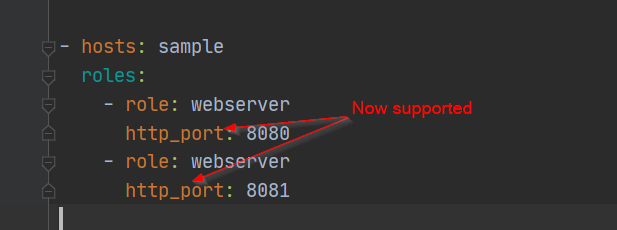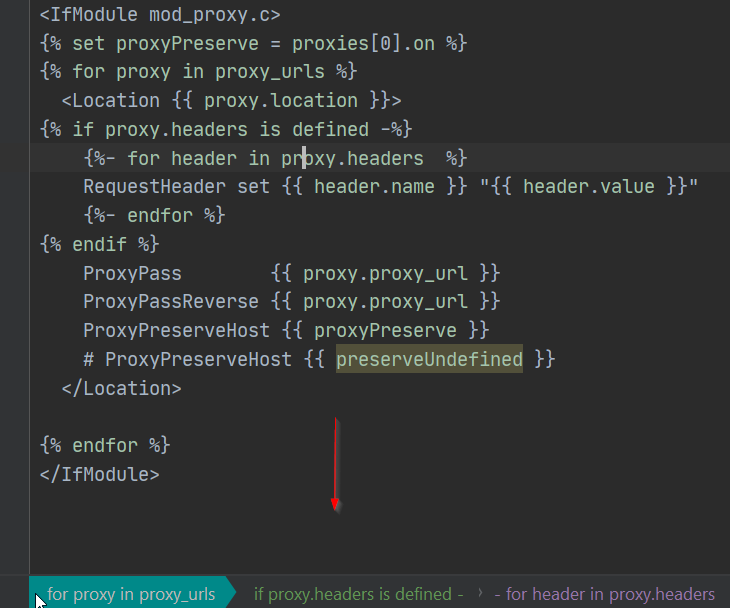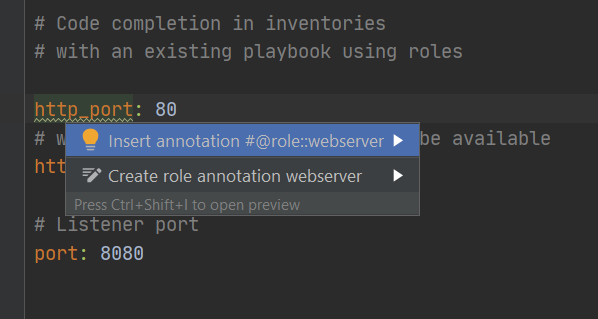January 15, 2023
OrchidE 2022.1.2.0
OrchidE 2022.1.2.0 comes with more inspections and improvements for imported playbooks.
A new inspection checks if a used Ansible task without namespace leads to an ambiguity. The listed namespaces in the collections keyword are taken into account.

Import playbook
In playbooks imported from other playbooks (via import_playbook) the keywords ‘vars’ and ‘vars_files’ are now also supported. This means that variables defined with vars/vars_files are used for navigation, code completion and for the inspection ‘Undefined Variables’.
The feature also supports cascaded imports from playbooks.
Private role vars
For navigation, code completion and the inspection “Undefined Variables”, “private role vars” are now also taken into account in Jinja2 templates.

Jinja2 templates
In Jinja2 templates there is now a status bar that displays a breadcrumb of Jinja expressions.

Inventory
To have improved support for navigation, quick documentation, code completion and inspections in inventory variable files there is the OrchidE Role Annotation.
A new intention and inspection support to add the annotation afterwards.
If the warning for the missing annotation is not desired, it can be configured or disabled in the settings (Settings ➞ Editor ➞ Inspections ➞ Ansible: ‘Missing role annotation’).

Changes
- Bugfix: Quick fix ‘Create group/host variable’ shows too many possibilities. (Also unsupported meta/argument spec files are shown).
- Bugfix: Error when a Vault file is opened in the IntelliJ editor and decrypted outside of IntelliJ.
- Bugfix: Variable values / resolved references of Jinja2 templates are not displayed as inlay in IntelliJ 2022.3.</li>
Deprecation
Support for IntelliJ platform 2021.1 is deprecated and will end with the release of IntelliJ platform 2023.1.
